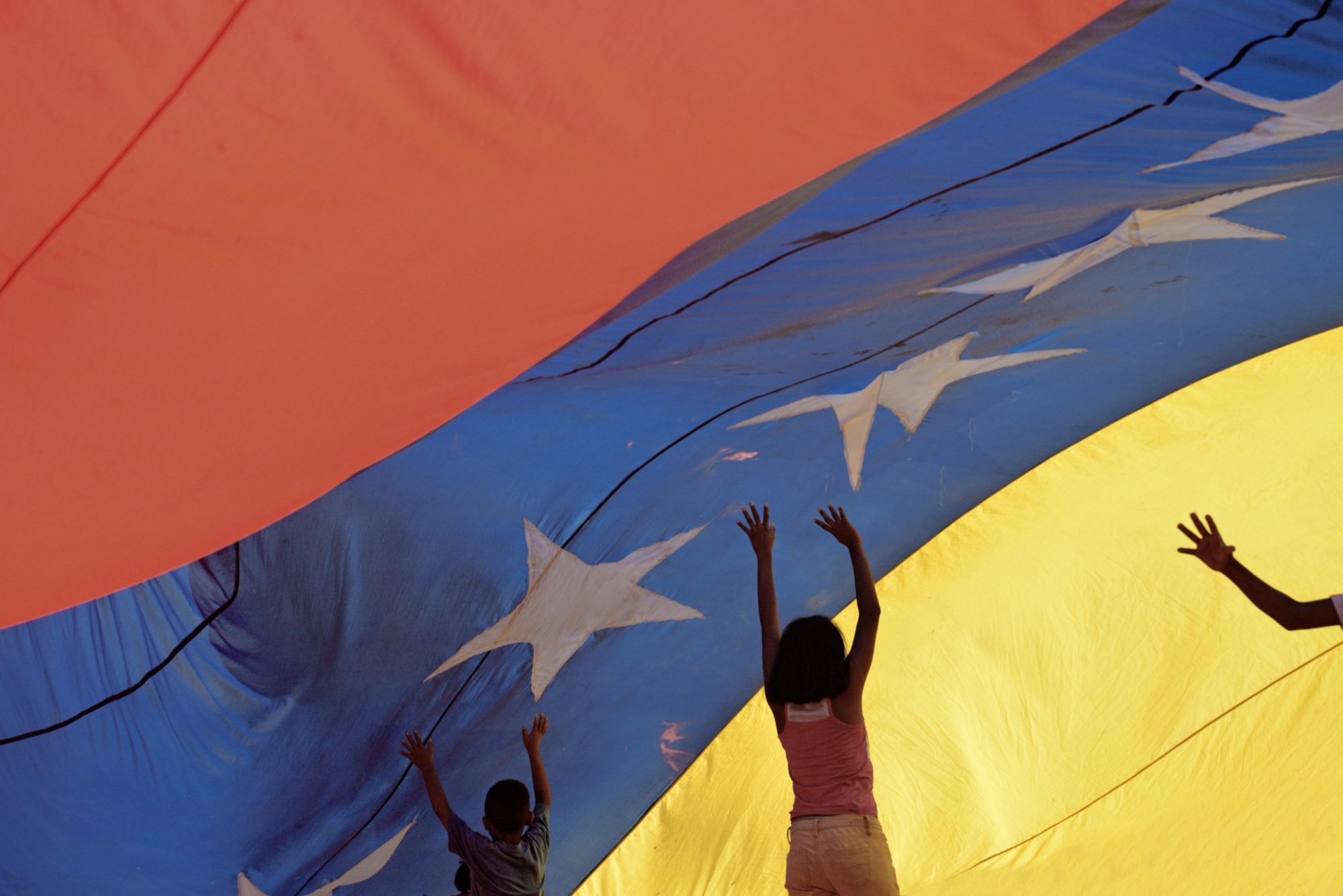The extradition of Alex Saab, a Colombian businessman and associate of Venezuelan dictator Nicolas Maduro, to the US on Oct. 16 after his arrest in Cape Verde could spoil a months-long negotiation between Maduro and the Venezuelan opposition, the first such talks in more than two years. This extradition is a reminder that President Joe Biden is largely implementing the shortsighted Venezuela policy crafted under President Donald Trump. Instead of prolonging the status quo and hoping for different results, Biden should ditch a policy that effectively amounts to regime change in Latin America.
For the US Justice Department, the prosecution of Saab is a big development. Indicted in 2019 on seven counts of money laundering and one count of conspiracy, Saab likely holds immense knowledge about the Maduro government’s sanctions-busting schemes. Venezuela, once the most prosperous country in South America, is now among the poorest. According to the US Agency for International Development, 96% of Venezuelans live below the poverty line, with 70% living in extreme poverty. Many Venezuelans are forced to rummage through garbage for food. Motorists are forced to wait hours in lines to fill up their tanks, if they are lucky enough to get any gas at all. Nearly a fifth of Venezuela’s entire population has fled the country, with many seeking new lives in Colombia, Brazil, Panama, and Argentina. All of this is occurring as Maduro, perhaps the world’s most incompetent administrator, is cracking down on dissent, with Venezuelan security forces purportedly engaging in acts of violence so horrific that a special UN envoy has likened them to crimes against humanity.
Most of Venezuela’s troubles can be laid at the feet of Maduro, whose only talent at this point is finding ways to survive and keep his perch at the presidential palace. Yet, there can be no dispute that US policy is at least exacerbating the economic turmoil so prevalent in Venezuela today.
Ever since Maduro won a disputed snap election in 2013 after the death of Hugo Chavez, successive US administrations have attempted to use economic and diplomatic pressure to reinstitute democracy in Venezuela. This has largely come in the form of sanctions on everything from senior Venezuelan officials to the nation’s oil-industry, the lifeblood of the Venezuelan economy.
Since 2009, the US has designated more than 400 Venezuelan individuals or entities for sanctions. The Trump administration was particularly reliant on the sanctions tool, targeting Venezuela’s energy and gold sectors, blocking Venezuelan government property in US jurisdiction, penalizing foreign entities that engaged with the Venezuelan oil and natural gas industries, and making it virtually impossible for the government in Caracas to access loans from the World Bank and the International Monetary Fund. The Biden administration has largely implemented the same policy. The result in terms of the Venezuelan government’s bottom line has been devastating: Last year, the country’s oil exports reached its lowest point in more than seven decades.
If the US truly wants to aid Venezuelans, it ought to help, rather than hurt, the very diplomatic process US officials publicly claim to support.
The economic pressure, however, has also caused unnecessary misery and suffering for the Venezuelan people, who are already dealing with ineptitude, corruption, and brutality from their own leaders. Maduro, who was theoretically supposed to relent under extreme economic pain, has instead consolidated his authority by weeding out rivals and taking advantage of an often fractious Venezuelan opposition movement. Juan Guaido, whom the US continues to recognize as Venezuela’s interim president (the European Union dropped recognition in January), is increasingly thought of as an ineffectual politician with little public legitimacy, with a poll earlier this year finding only 26% of Venezuelans approved of his leadership.
The US campaign of maximum pressure has repeatedly worked at cross-purposes with the very negotiated resolution Washington supposedly wants. Just as the imposition of more US sanctions on Caracas gave Maduro a perfect excuse to withdraw from intra-Venezuelan talks in August 2019, Saab’s extradition over the weekend could yet again pull the carpet out from underneath the diplomacy.
If the US truly wants to aid Venezuelans, it ought to help, rather than hurt, the very diplomatic process US officials publicly claim to support. Washington should remain at arm’s length in these talks and allow Venezuela’s neighbors to take more responsibility in shepherding a diplomatic resolution. Washington should cease insisting on maximalist outcomes, the most potent being Maduro’s immediate resignation, which is totally unrealistic given the strong position (at least in relation to the opposition) the dictator is currently in. If or when negotiations resume, the US should also use its considerable influence over the opposition to leave all preconditions at the door. As much as Guaido may think otherwise, he has very little leverage on his own.
Meanwhile, the US should loosen some of the sanctions that have worsened the Venezuelan population’s living standards. The US ban on diesel-fuel swaps, in which Venezuelan crude is exchanged for diesel fuel, compounds the country’s fuel shortages, slows food distribution, and should therefore end. Venezuelan reserves currently frozen in the US financial system should be made available in order to finance basic imports. These measures can be taken even if political talks remain stalled.
The return of democracy to Venezuela will be a long, hard slog, assuming it happens at all. Ultimately, Venezuela’s problems will have to be solved by Venezuelans themselves. No progress, however, will occur if the US refuses to get out of the way.
Daniel R. DePetris is a fellow at Defense Priorities and a foreign affairs columnist at Newsweek.





















